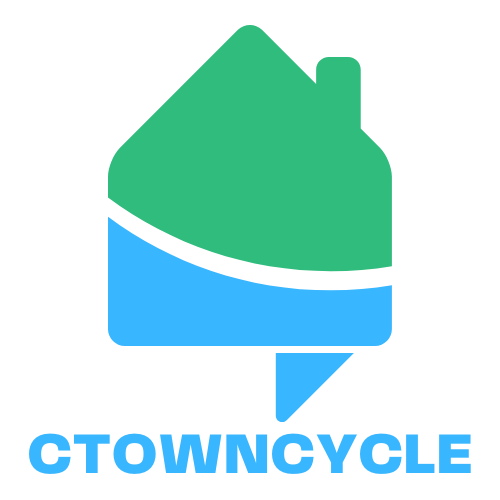Table of Contents
ToggleImagine turning that spare room into a money-making machine while you kick back with your morning coffee. House hacking with Airbnb isn’t just a trend; it’s a savvy way to cover your mortgage or fund your next vacation. Who wouldn’t want to earn cash while sharing their home with travelers from around the world?
Understanding House Hacking
House hacking offers a strategic approach to generating supplemental income by renting out part of a home. This method is particularly effective when utilizing platforms like Airbnb.
What Is House Hacking?
House hacking refers to the practice of renting out all or part of a primary residence to offset living expenses. Homeowners typically rent out spare rooms, basements, or entire units while residing in the property. Many people use this strategy to cover mortgage payments while making extra income. To maximize its effectiveness, individuals often utilize services like Airbnb to attract guests.
Benefits of House Hacking
House hacking provides several financial advantages. One primary benefit includes reduced housing costs, as rental income can directly cover mortgage payments. Additionally, this method allows for diversifying income sources, reducing reliance on a single paycheck. Hosting on platforms like Airbnb also creates opportunities for social interaction and cultural exchange with guests. Tax benefits often arise from renting parts of a home, further enhancing financial gains.
How Airbnb Fits Into House Hacking
Airbnb serves as a valuable tool for house hacking. This platform simplifies the process of renting out space, providing homeowners with opportunities to generate income.
Overview of Airbnb Model
Airbnb operates as a marketplace connecting guests and hosts. Hosts list available spaces such as spare rooms or entire units, while guests seek short-term accommodations. Booking occurs through the app or website, facilitating communication between both parties. Hosts manage pricing and availability based on their preferences. Flexible rental terms enhance appeal, attracting travelers with diverse needs.
Financial Advantages of Using Airbnb
Using Airbnb generates significant financial benefits. Homeowners can cover mortgage payments by renting out rooms or units. This method reduces housing costs, allowing for financial breathing room. On average, hosts earn about $924 monthly, depending on the property’s location and amenities offered. Additional income can finance vacations or bolster savings. Tax deductions may apply, further enhancing the financial advantages. Maximizing the rental during peak seasons amplifies earnings, making house hacking more lucrative.
Setting Up Your Space for Airbnb
Creating an inviting space for guests sets the tone for a successful Airbnb experience. Focusing on details enhances guest comfort and increases satisfaction.
Preparing Your Property
Start with a thorough cleaning of the entire property, including common areas and private spaces. Consider decluttering rooms to create a more spacious feel. Adding fresh paint to walls introduces a new atmosphere. Furnishing with comfortable and stylish furniture completes the presentation. Notice the importance of good lighting; it significantly impacts the overall ambiance. Finally, ensure safety features, including smoke detectors and secure locks, meet necessary standards.
Essential Amenities for Guests
Providing essential amenities ensures a positive experience for guests. Stock the kitchen with basic utensils, cookware, and appliances like a microwave and coffee maker. Include toiletries such as shampoo, soap, and clean towels in the bathroom. Internet access plays a vital role; high-speed Wi-Fi is often expected. Thoughtful touches like complimentary snacks or beverages enhance guest enjoyment. Also, consider providing local information about restaurants and attractions, which helps guests maximize their visit.
Managing Your Airbnb Business
Effectively managing an Airbnb business involves multiple strategies for success.
Marketing Your Listing
Creating a compelling listing attracts potential guests. Use high-quality photos showcasing unique features and amenities. Write clear and engaging descriptions highlighting the space’s benefits and local attractions. Pricing strategies significantly influence booking rates. Research similar listings in the area to remain competitive. Emphasizing standout features, like hot tubs or scenic views, can also entice guests. Utilizing social media platforms to share listings increases visibility. Engaging with local tourism boards may help in reaching broader audiences. Regularly updating the listing keeps it fresh and relevant, ultimately enhancing booking opportunities.
Handling Guest Interactions
Effective communication fosters positive guest experiences. Prompt responses to inquiries create a welcoming atmosphere. Setting clear expectations regarding check-in procedures and house rules helps prevent misunderstandings. Offering personalized recommendations for local activities enhances the guest experience. Creating a detailed welcome guide might assist guests in enjoying their stay. Additionally, addressing issues quickly promotes trust and satisfaction. Following up after check-out with a thank you message can lead to positive reviews. Engaging with feedback encourages improvement and strengthens future interactions. Prioritizing hospitality not only increases chances of repeat bookings but also builds a strong reputation in the Airbnb community.
Challenges of House Hacking with Airbnb
House hacking with Airbnb presents several challenges that potential hosts should consider. Understanding these obstacles helps in making informed decisions.
Potential Pitfalls
Many homeowners face potential pitfalls when renting on Airbnb. Issues like property damage commonly arise, leading to unexpected repair costs. Guests may not always treat accommodations with care, resulting in extra expenses for cleaning or replacement of items. Additionally, unpredictable occupancy rates can make income inconsistent. Vacation periods might fill rooms faster, but off-peak times lead to lower earnings. Balance is crucial, as reliance solely on Airbnb revenue can create financial strain during slow months.
Regulatory Considerations
Regulatory considerations play a significant role in house hacking with Airbnb. Compliance with local laws and zoning regulations is essential. Many municipalities impose restrictions on short-term rentals, requiring permits or registration. Violating these regulations can result in fines or legal action. In some areas, homeowners face limitations on the number of days they can rent their property. Understanding local ordinances helps mitigate risks. Some homeowners may also reconsider insurance coverage, ensuring it includes short-term rental protections.
House hacking with Airbnb presents an exciting opportunity for homeowners to turn unused space into a profitable venture. By effectively managing their listings and creating inviting environments for guests, they can significantly offset housing costs and diversify income streams. While challenges exist, such as fluctuating occupancy rates and regulatory compliance, the potential for financial gain is substantial.
With careful planning and attention to detail, homeowners can enjoy not only the financial benefits but also the enriching experience of hosting travelers. Embracing this innovative approach can lead to a rewarding and sustainable way to enhance one’s living situation while contributing to the vibrant sharing economy.




